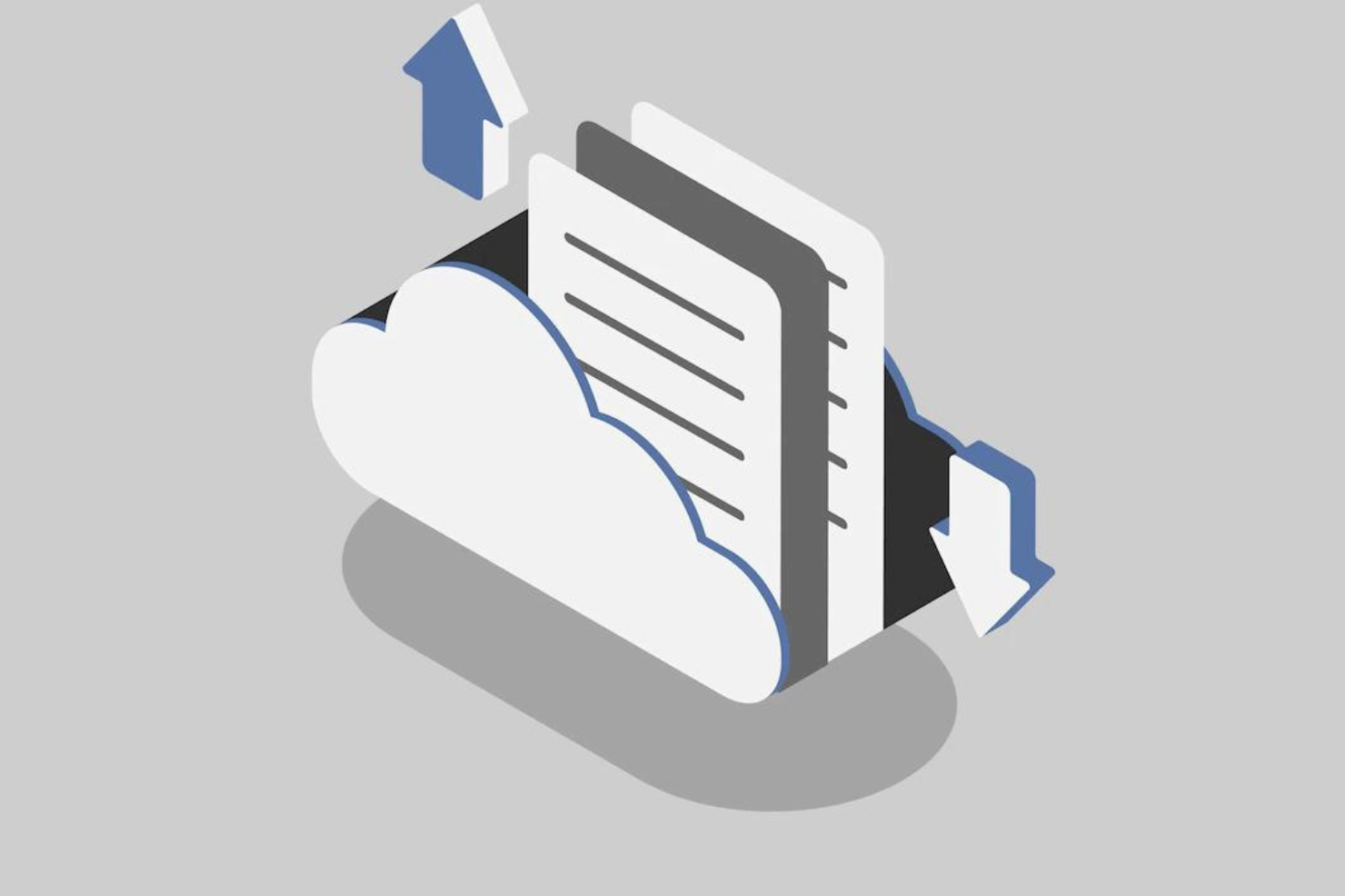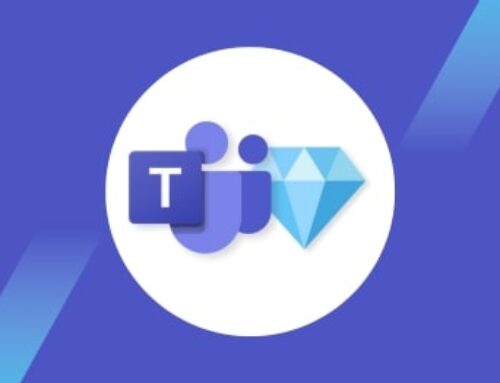In today’s modern world, there is an overflow of data due to the digitization of files and documents, particularly in the workplace. Hence, it is crucial to find the right platform to store and share files in order to prevent data loss and boost collaboration at work. Microsoft offers two powerful platforms that enable employees to easily access, store, and share their data wherever they are in the world and at any time.
OneDrive for Business and SharePoint Online are both popular, cloud-based products that not only help you manage your data but also collaborate with others in real-time. However, even though OneDrive for Business and SharePoint Online have some similarities, they function in different ways and have distinct use cases, depending on what is required in each business. If you want to know which platform is best for you, continue reading this article, as we will compare both platforms.
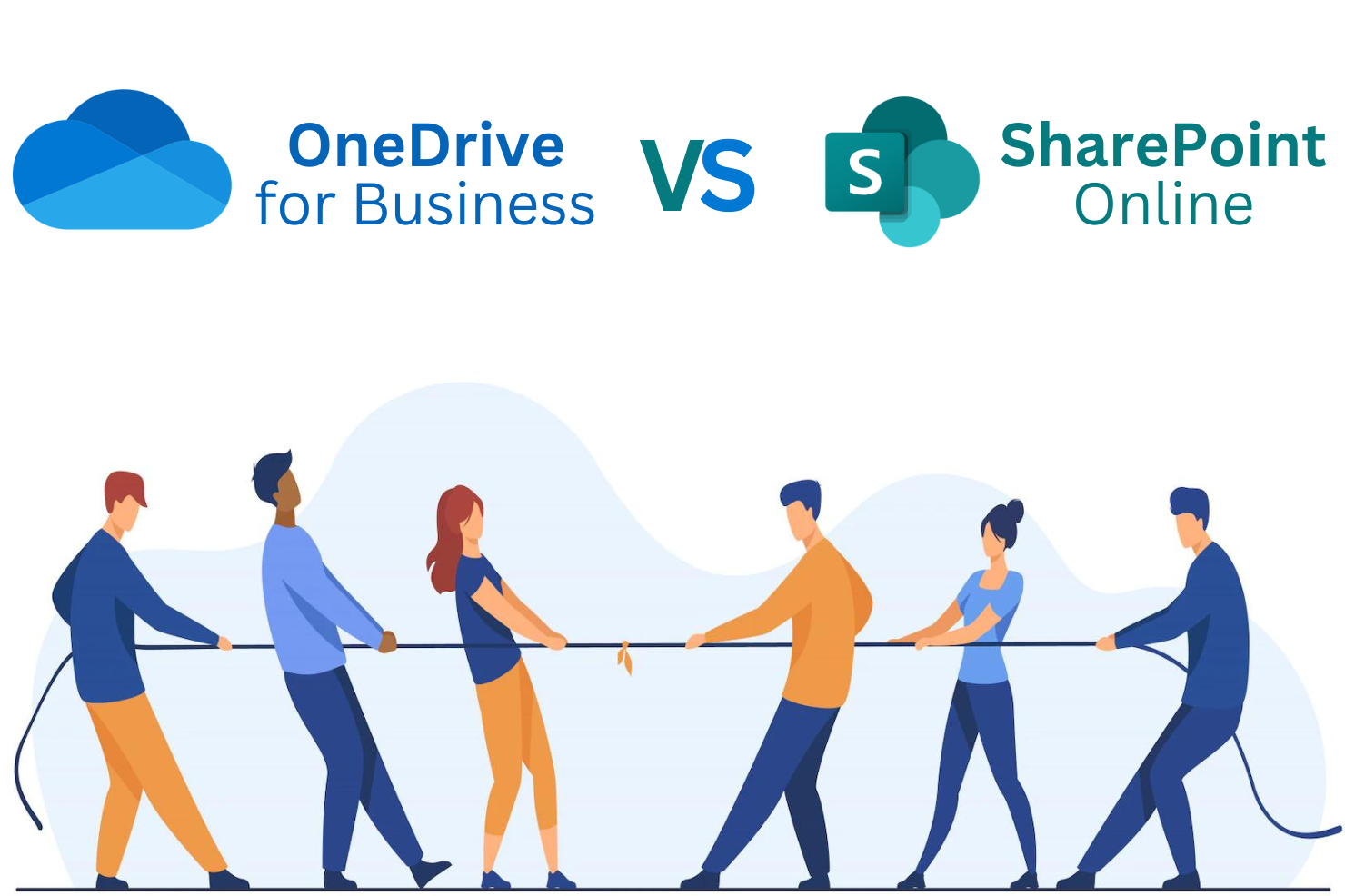
What is OneDrive for Business?
As its name entails, OneDrive for Business is a cloud-based platform that allows users to manage their individual work data; they can store, share, and collaborate on all their files from anywhere and on any device. You can think of OneDrive for Business as your own cloud-based flash drive that always safeguards your data so that you don’t have to worry about losing data ever again, especially if your device got damaged or stolen. With OneDrive for Business, you will always have a strong, reliable cloud backup service.
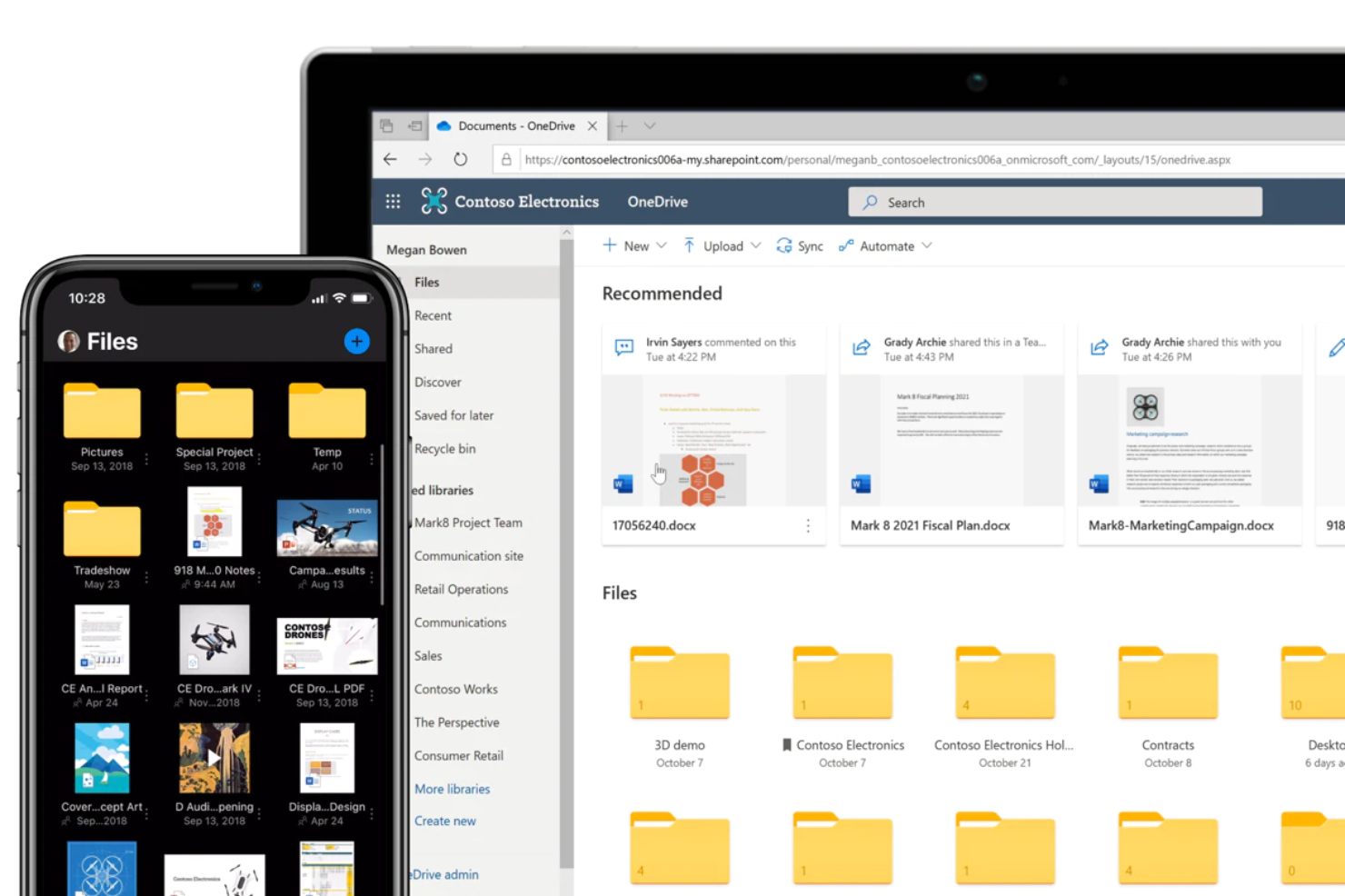
What is SharePoint Online?
While SharePoint Online is also a cloud-based space to access and store files, it offers businesses wider and more advanced functionalities. SharePoint Online is better designed for sharing and collaboration across organizations which makes it a more corporate platform rather than an individual one. With SharePoint Online, businesses get their own data management system that acts as an intranet where they can easily share company updates, events, and documents. Moreover, teamwork is at the heart of SharePoint Online, as organizations can create team sites where users are divided into project teams, divisions, and departments.
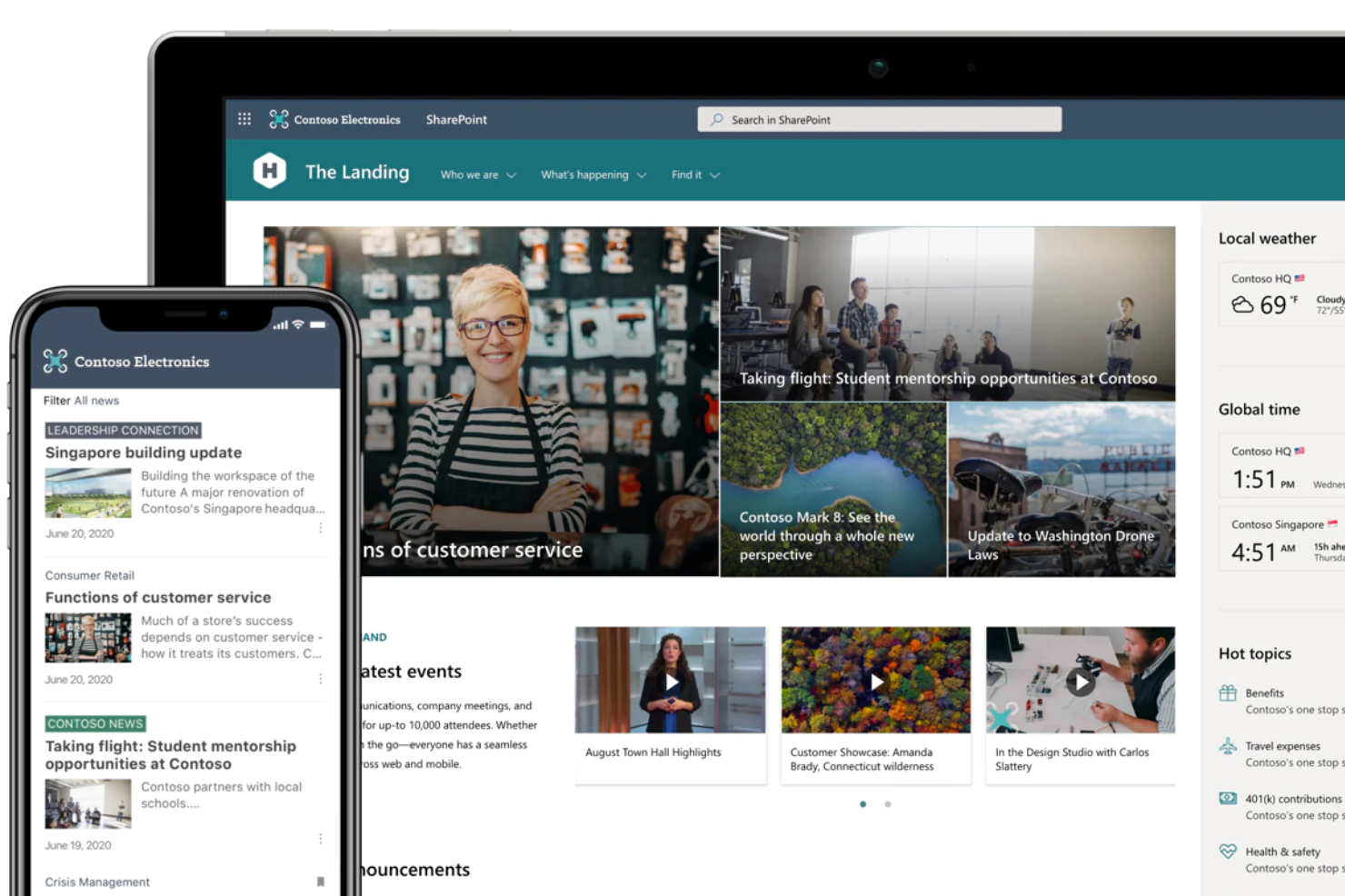
Feature Comparison
1- Collaboration
Even though both OneDrive for Business and SharePoint Online offer collaborative solutions, SharePoint Online provides organizations more collaborative capabilities. First, SharePoint Online can be used as an intranet in which businesses can share company news, events, and updates to help people in the organization stay in the known and share their thoughts or feedback. Second, SharePoint Online boosts teamwork and productivity with its team sites feature—making it easier to share files, data, news, and resources within a specific group or team site. Organizations can create project-based management sites, HR portals, and document libraries. Third, dashboards, notifications, deadlines, and trackers make SharePoint Online a more efficient means of collaboration, as people can keep track of projects, see status updates, and get incoming deadline notifications while working.
In contrast, OneDrive for Business does not include the abovementioned collaboration capabilities because it is more designed for individuals rather than teams. In OneDrive for Business, data is private and only belongs to the owner of the account unless he/she decides to share a certain file or document. An important difference between SharePoint Online and OneDrive for Business lies when an employee leaves the company and his/her Microsoft 365 account gets deleted. In OneDrive for Business, you can give another user access to the OneDrive of the deleted Microsoft 365 account, but they will only have 30 days to access and download the files they want to keep. After that period, all data will be permanently deleted. In comparison to this, if a user shares documents in a SharePoint team site, even if his/her account gets deleted, the documents will be preserved, and people can still collaborate on them, as the documents belong to a team site and are not limited to a single user.
2- Security
Both OneDrive for Business and SharePoint Online safeguard your data in the cloud by using best-in-class encryption so data is protected in transit and at rest. Therefore, when it comes to security, both platforms are highly secure and reliable. Nevertheless, in SharePoint Online, users can enforce even more security to protect content in SharePoint sites with device access controls. In enterprise sites, admins can enable browser-only access which prevents users from editing and downloading files. Admins can also block content access from unmanaged devices.
Furthermore, with SharePoint Online’s versioning feature, permitted users can store, track, and restore the previous state of an item or document to how it was before other users changed it which gives people in charge more control over documents. Thus, by offering data management tools and controls, security is strengthened, and only admins and permitted users are granted access control in SharePoint Online.
3-High Availability and Recoverability
Microsoft ensures that data stored in OneDrive for Business and SharePoint Online is highly available, fault tolerant, and always recoverable with its geo-distributed datacenters within the region. To lessen the effects of a natural disaster or a service-impacting outage, data is replicated in at least two Microsoft datacenters. In fact, SharePoint has a custom-built solution for storage of customer data in Azure Storage. Every file is simultaneously written into both a primary and a secondary datacenter region to ensure high availability. Not only is your data stored in two different regions, but in each region, multiple copies of your data are stored in Azure Storage. This ensures a high level of reliability and protection in case of any planned or unplanned events such as transient hardware failures, network or power outages, and massive natural disasters. Therefore, Microsoft is committed to protecting your data no matter the circumstances, and it guarantees an uptime of 99.9%.
4- Website, Apps, and CMS
One of the main differences between OneDrive for Business and SharePoint Online is that SharePoint can also be used as a content management system (CMS) that gives businesses the ability to set up web pages and even applications. With SharePoint’s content management system, you can publish your documents directly to your company’s website.
Furthermore, with SharePoint Online, you can create pages like FAQ sites, employee portals, and customer review forms and build custom apps. All these capabilities are not offered in OneDrive for Business, as it is not designed for content management.
Which is Better? OneDrive for Business or SharePoint Online?
Regardless of the type of business you are running, it is important to manage your data in the cloud, especially with the influx and digitization of data in our modern world. Both OneDrive for Business and SharePoint Online are great tools for your business, as they help you protect your data and improve collaboration and productivity. Thus, it all depends on what you need for your organization and how flexible you need your business processes to be. If you only require personal storage for each user, then OneDrive for Business is what you need. However, if you require an enterprise-level content management system that not only stores your files but also boosts collaboration and teamwork, then SharePoint Online is the perfect package for you.
